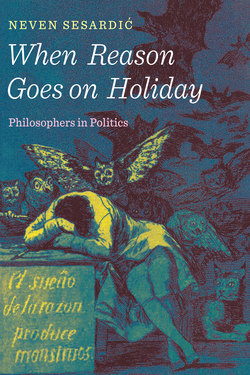Читать книгу When Reason Goes on Holiday - Neven Sesardic - Страница 12
На сайте Литреса книга снята с продажи.
ОглавлениеCHAPTER FOUR
Rudolf Carnap: Blaming the West for the Iron Curtain
“Since the first World War Carnap stood politically very far to the left. His reaction to the Marxist critique of philosophical empiricism is worth noting: whereas he criticized traditional metaphysical philosophers very sharply, he did not attack or criticize the Marxists.”
—WOLFGANG STEGMÜLLER
In discussing the political opinions and actions of logical positivists, our attention inevitably turns to the indisputably most important member of that movement, Rudolf Carnap. What were his views? Where did he stand compared to the notoriously radical Neurath?
The surprising answer is that, in terms of politics, there is some evidence that in the interwar period there was no difference at all between these two philosophers. According to a credible source, Carnap once said to the philosopher Robert S. Cohen: “If you want to find out what my political views were in the twenties and thirties, read Otto Neurath’s books and articles of that time; his views were also mine” (from Marie Neurath’s preface in Neurath 1973, xiii; emphasis added).
The huge difference between the two positivists was, of course, that Carnap devoted most of his energies to scholarship and did not have the time or interest for the kind of political activism Neurath was involved in. Carnap’s political engagement was restricted to being a sponsor for various leftist causes and signing political petitions. But this still tells us a lot about the man.
Carnap wrote in his diary that he once expressed “an inclination to Communism” (Nemeth & Stadler 1996, 31). This was in 1934, at the time when Stalin had already consolidated his power and immediately after the horror of the Holodomor had been reported in all media.
He never joined the Communist Party, although he supported many of its actions. Political scientist Alan Gilbert gives an interesting explanation why Carnap never became a Communist:
Carnap rightly felt that the only decent response to McCarthyism was to join the Communist Party[!]. He tried to look it up in the Los Angeles phone book, but the Party, under attack, had gone underground and was no longer listed. So he couldn’t join (Gilbert 2016).
This hilarious story is probably true because Gilbert got it from Hilary Putnam, who had worked closely with Carnap in the early fifties.
Carnap publicly supported many progressive causes and signed many petitions that appeared in the Daily Worker, the newspaper of the Communist Party of the United States. So what, some will say. The Communist Party was a completely legal organization. As long as the views he defended were reasonable, it should not matter much where they were published. Doesn’t objecting to someone’s association with Communists smack of McCarthy-era witch hunting?
Not really.1 Consider the following analogous situation. If a person’s name regularly appeared in a bulletin of the Ku Klux Klan, usually we would not regard this as acceptable for an educator at a major American university, even if there were nothing particularly problematic about specific views he advocated there (say, support for family values). The association matters.
